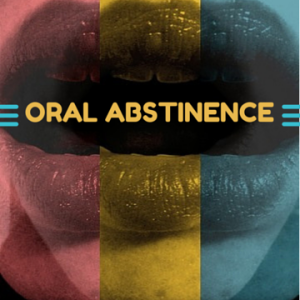 Abstinence means many things to many people. Among other things, it may or may not include masturbation. Being sexual with yourself carries none of the risks of being sexual with another person (physically or emotionally) and has loads of benefits.
Abstinence means many things to many people. Among other things, it may or may not include masturbation. Being sexual with yourself carries none of the risks of being sexual with another person (physically or emotionally) and has loads of benefits.
And so, included in Making Sense of Abstinence, is this awesome lesson on masturbation. (The title of it has to be my favorite lesson title of all time.)
MASTURBATION:
A touchy subject
OBJECTIVES:
Participants will:
- Learn basic facts and dispel common myths about masturbation.
- Examine common attitudes and their own feelings about masturbation.
- Understand masturbation as a healthy form of sexual expression and a possible alternative to intercourse that can be consistent with one’s definition of abstinence.
RATIONALE:
Young people have lots of questions about masturbation. Websites that provide sexual information for teens, such as teenwire.com and sexetc.org, report that masturbation is one of the topics that young people ask about most often. Yet in the absence of accurate information, young people may adopt as fact the many myths that abound.
Abstinence-only education programs often compound the problem by remaining silent on masturbation, while condemning all sexual activity. The unspoken message is that masturbation should be avoided too. In a world of myths and misinformation, it is important for young people to develop positive attitudes about a behavior in which most will engage, regardless of whether or not they choose to abstain from intercourse. This lesson helps participants examine common attitudes and beliefs about masturbation in a non-threatening, non-judgmental manner.
(I should start off by letting you know that I put stickers next to the lesson plans as I write about them so I don’t write about the same one twice. The sticker sheet that I am currently using has little glittery smilie facies. And putting one next to this title made me smile a little bit.)
I like this lesson plan because it offer really nicely stated, comprehensive answers to some of the misconceptions about masturbation. Here are two examples:
Masturbation is a behavior that occurs in societies throughout the world.
TRUE. Masturbation has not been studied in every country in the world, but it is rare to find a culture in which no one has ever masturbated. According to current studies in 32 countries outside the United States, the range of people who report masturbating varies a great deal. For example, 16% of young Chinese women students report masturbating compared with 87% of young women in Australia; for young men the figures are 59% in China and nearly 100% in Sweden.
By comparison, in one U.S. study among adults ages 18 to 59, about 60% of men and 40% of women report having masturbated in the preceding year; in another, 90% of males and about half of females report masturbating from time to time. Research in the United States Making Sense of Abstinence: Lessons for Comprehensive Sex Education © 2005 by The Center for Family Life Education www.SexEdStore.com shows this incidence has not changed much for men in the past half century, but more women, including younger women, are reporting masturbating in recent years. However, it is important to note that most of this research relies on self-reporting. Since not everyone is comfortable being honest when reporting about masturbation, some percentages may be higher or lower in reality.
Too much masturbation can cause health problems.
FALSE. Frequent masturbation does not cause health problems. Generally people stop when they feel their bodies are sexually satisfied. In fact, research indicates that there may be many health benefits to masturbation, such as:
- Reducing stress and tension
- Avoiding sexually transmitted infections and unplanned pregnancy
- Relieving menstrual tension and cramps
- Making blood and hormones pump through the body faster, which helps the body produce cells better
- Helping prevent disease by increasing the flow of white blood cells and building up resistance to infections
- Strengthening muscles in the pelvic and anal area
- Helping prevent breast cancer, prostate cancer, and other prostate problems
These are important facts! And learning about them might help young people understand masturbation on an…ahem…deeper and more satisfying level.




